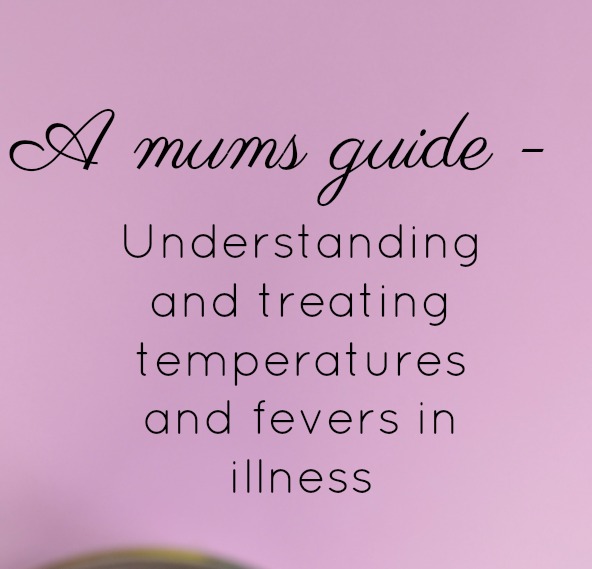When it comes to illness A high temperature is very common to run alongside it making us feel lousy you know that feeling when it feels like someone has been hammering on your head, or every step makes your head hurt and the room feels like it is bouncing as we go.
After this week and the boys suffering with high temperatures I thought I would talk a little about them always helpful information to know and refresh yourself if you cant remember.
What is a High temperature?
Most people think that 37' is a "normal" temperature to be but this isn't always the case normal temperatures can vary from person to person based on different factors such as,
- The person
- Their age
- What they've been doing
- The time of day
- Which part of the body you take the temperature from
A high temperature or fever is not a separate illness, temperatures usually co-inside with an infection and its a good sign the body is fighting against it, although it still isn't pleasant to experience.
Part of the brain called the hypothalamus may decide to regulate the body's temperature to a higher level.
There are lots of reasons why we might get a temperature common causes are;
- Colds and flu
- Gastroenteritis stomach bugs
- Infections of the ear, lung, skin, throat, bladder or kidney
- Inflammatory conditions
- Side effects of drugs
- Cancer
- Routine vaccinations
Less Common causes,
- Blood clot or pulmonary embolism
- Autoimmune diseases such as lupus, rheumatoid arthritis and inflammatory bowel disease
- Hormone disorders such as hyperthyroidism
- Illegal drugs that increase heat production such as amphetamines and cocaine
- Infections abroad, such as malaria
Temperatures and fever is a natural bodily defence against infection. There are also non-infectious causes of fever. These include the temperature related condition hyperthermia and dangerous rises in body temperature. This may be due to a heat injury, such as heat stroke, or the side effects of some medications.
If you are unsure of anything you get other symptoms alongside this or you cant maintain your temperature with medication you should always seek medical advice from A GP, local Health care professional Or you ring NHS Direct.


Interesting! Thanks for sharing!
ReplyDelete